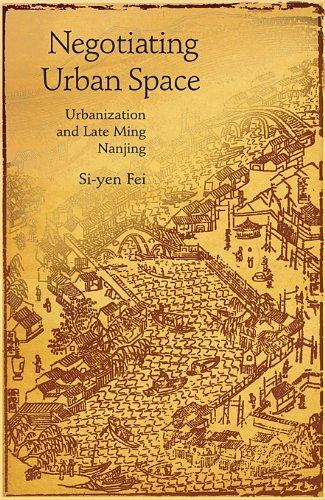

Most ebook files are in PDF format, so you can easily read them using various software such as Foxit Reader or directly on the Google Chrome browser.
Some ebook files are released by publishers in other formats such as .awz, .mobi, .epub, .fb2, etc. You may need to install specific software to read these formats on mobile/PC, such as Calibre.
Please read the tutorial at this link: https://ebookbell.com/faq
We offer FREE conversion to the popular formats you request; however, this may take some time. Therefore, right after payment, please email us, and we will try to provide the service as quickly as possible.
For some exceptional file formats or broken links (if any), please refrain from opening any disputes. Instead, email us first, and we will try to assist within a maximum of 6 hours.
EbookBell Team

4.3
68 reviewsUrbanization was central to development in late imperial China. Yet its impact is heatedly debated, although scholars agree that it triggered neither Weberian urban autonomy nor Habermasian civil society. This book argues that this conceptual impasse derives from the fact that the seemingly continuous urban expansion was in fact punctuated by a wide variety of “dynastic urbanisms.” Historians should, the author contends, view urbanization not as an automatic by-product of commercial forces but as a process shaped by institutional frameworks and cultural trends in each dynasty.
This characteristic is particularly evident in the Ming. As the empire grew increasingly urbanized, the gap between the early Ming valorization of the rural and late Ming reality infringed upon the livelihood and identity of urban residents. This contradiction went almost unremarked in court forums and discussions among elites, leaving its resolution to local initiatives and negotiations. Using Nanjing—a metropolis along the Yangzi River and onetime capital of the Ming—as a central case, the author demonstrates that, prompted by this unique form of urban-rural contradiction, the actions and creations of urban residents transformed the city on multiple levels: as an urban community, as a metropolitan region, as an imagined space, and, finally, as a discursive subject.